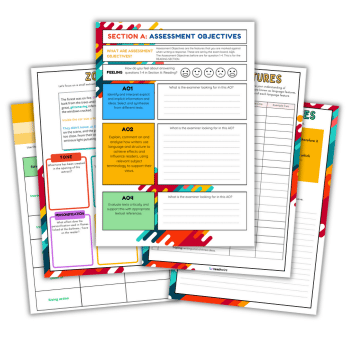GCSE Revision – How to plan, practice and succeed

Effective revision undoubtedly leads to better exam results – but what should it look like? Claire Gadsby has some suggestions…

Did you know that 88% of students who revise effectively exceed their target grade? Interestingly, most young people do not know this; failing to realise how exactly how much of a game-changer revision really is.
Sitting behind this apparently simple statement, though, lies the key question: what is effective revision?
In my work with thousands of pupils around the world, I have not met many who are initially overjoyed at the thought of revision.
More often, it is perceived as an onerous chore to be endured, in solitude, before facing the trial of the exams.
It does not have to be this way, however – and I am passionate about taking the pain out of the process.
Revision can – and should be – fun. Yes, you read that right. The following strategies may be helpful for you in motivating and supporting your students on their revision journey.
1 | Timer challenge
Reassure your students that not everything they’ve learnt needs revising: lots is actually still alive and well in their working memory.
Put a timer on the clock and challenge them to see how much they can recall about a particular topic off the top of their head in just five minutes. The good news is that this is ‘banked’; what pupils need to do now is to focus their revision on those areas that they did not write down. It is only at this point that they need to start scanning through notes to identify things they had missed.
2 | Bursts and breaks
It is quite common for young people to feel overwhelmed by the sheer amount of revision ahead of them. Be confident when you reassure them that ‘little and often’ really is the best way to tackle it. Indeed, research suggests that a short burst of 25 minutes of revision followed by a five-minute break is the ideal. Make the most of any ‘dead time’ slots in the school day to include these short revision bursts.
3 | Better together
Show students the power of collaborative revision. Working with at least one other person is energising and gets the job done quicker. Activities such as ‘match the pairs’ or categorising tasks have the added advantage of also promoting higher order thinking and discussion.
4 | Remove the scaffolds
It is not effective to simply keep reading the same words during revision. Instead, ‘generation’ is one of the key strategies proven to support long- term learning.
Tell pupils not to write out whole words in their revision notes. Instead, they should write just the first letter of key words and then leave a blank space.
When they look back at their notes, their brain will be challenged to work harder to recall the rest of the missing word which, in turn, makes it more likely to be retained for longer.
5 | Playful but powerful
We know that low-stakes quizzing is ideal, and my ‘Lucky Dip’ approach can be helpful here. Keep snippets of revision information, such as key terms and concepts, ‘in play’ by placing them in a gift bag or similar.
Every so often, mix these up and pull one out at random to check for understanding. Quick, out of context checks like this are a type of interleaving, which is proven to strengthen recall.
Claire Gadsby is an educational trainer, author and founder of Radical Revision – a comprehensive online revision programme launching with its first cycle in January 2022, which will offer sustained support and structure to students in the lead-up to their exams. Sign up for a free introductory session at clairegadsby.com/radical-revision.
You can download a Radical Revision ‘Getting Organised Checklist’ for your students from here.












